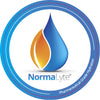Workplace Accommodations for People With POTS


Workplace Accommodations for People with POTS
Job accommodations are a necessary part of life when you have a chronic illness. That is, if you’re able to work. Some can’t. Let’s chat about what accommodations are, who qualifies, and then talk a little about the kinds of accommodations someone with dysautonomia might request at their job.
What are Job Accommodations?
A job accommodation is an adjustment to your duties or to the environment you work within for someone who has a disability. This makes it possible for the person with the disability to do their job as needed. The accommodations that each individual needs will vary widely. Even within the same illness group.
Who Qualifies for Workplace Accommodations?
Any person with a disability can qualify to receive accommodations at work. A person with a disability is defined by the U.S. Equal Employment Opportunity Commission as the following:
“An individual with a disability is a person who:
- Has a physical or mental impairment that substantially limits one or more major life activities;
- Has a record of such an impairment; or
- Is regarded as having such an impairment.”
This excludes people with substance abuse of drugs and alcohol.
According to the Americans with Disabilities Act (ADA) your workplace only needs to make those kinds of accommodations if they have more than 15 employees. If they have less than 15 it’s not a federally mandated requirement to follow ADA laws.
Workplace Accommodations for Dysautonomia
There is no one size fits all in the world of dysautonomia. Every single person has different co-morbidities that can make their illnesses wildly different. Even if you suffer from the exact same illness as another person your symptoms and the ways you manage them can be just as different and as unique as you. We polled some people and here’s some suggestions for things that they have done to make life a little easier while they’re at work.
- The ability to sit when needed
- Noise canceling headphones when there’s a need to concentrate
- Using fans or space heaters for temperature regulation
- Frequent breaks
- The ability to take longer or take more frequent breaks
- Schedule flexibility for doctors appointments
- Ability to wear alternate uniforms to accommodate temperature regulation issues
- Ability to work from home, as needed
- Access to medications or extra breaks to take medications
- For someone with POTS, hydration breaks with a medical grade ORS like NormaLyte
How to Ask for Accommodations
Asking for accommodations can be difficult. You might not want to disclose your illness to your employer. Talking about your diagnosis isn’t an easy thing, and there are a lot of reasons why you may not want your employer to know. It is completely up to you as to whether you want to disclose your illness. But consider that if your symptoms are bad enough that you’re considering asking for help then it may be in your best interest to follow through.
Request a meeting with your supervisor. Explain that you would like to chat through accommodations for your disability and what that might look like. Be prepared for this meeting by coming with notes on changes you would like. Don’t be afraid to ask for more than you may need as you may need to make some concessions in order to meet in the middle for your requests.
Be aware that employers do not have to honor all requests. There’s a limit to what they can do for you. If changes cause “undue hardship” interfering with the daily running and activities of business then the company does not have to honor your request. Something like adding air conditioning to a warehouse building, a thing that would be costly to a company to undertake, is not covered. But, providing an employee with fans to keep air moving around them is a reasonable request.
How Can NormaLyte Help?
NormaLyte is a medical grade electrolyte unlike the others. It’s free of preservatives, artificial dyes and colors, and in our PURE it’s also free of artificial sweeteners. This means NormaLyte is safe and effective for everyday use. Something that is a core competency of our company. If you suffer from POTS, a form of dysautonomia, NormaLyte has been clinically proven to manage symptoms. Allowing you to get back to work and lead a more normal life. Allowing you to find your normal.







Leave a comment